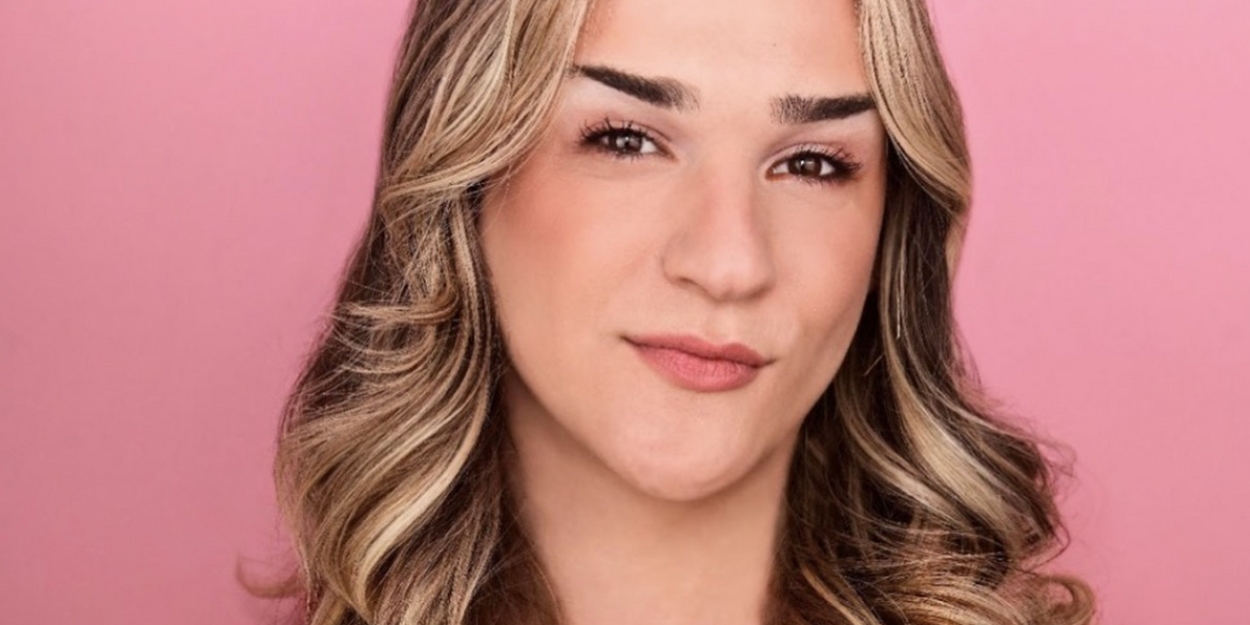How Maybe Burke Is Promoting Belonging and Inclusivity for & JULIET
What is a Gender and Belonging Partner and why does their work matter?

|
|

Diversity, equity, and inclusion (DEI) has been a hot topic across many industries post-pandemic, but especially in the theater world. With so much talk of having proper representation and more diversity onstage and off, it’s been more of a priority than ever to foster inclusive and safe work environments for all theater industry workers. But this also means providing the necessary tools and resources to reduce workplace harm.
As return-to-work negotiations were carried out in the long, slow months of the pandemic’s Broadway shutdown, DEI was at the forefront of these conversations. As Actors’ Equity Association’s Senior Business Rep for Tours, Dana Gal, told BroadwayWorld, having DEI consultants on productions was “certainly part of the discussion.”
Still, as of writing, there is no specific collective bargaining agreement requirement from Equity requiring a DEI staffer or consultant on Broadway productions and tours. In instances like the Main Stem and touring productions of & Juliet where there are specialists fulfilling this need, they are brought on by the producers.
“It benefits a diverse and inclusive company when DEI and/or Gender and Belonging Partners are part of the team there to support the culture, company, and launch of a show,” Eva Price, lead producer on & Juliet, told BroadwayWorld.
To that end, Price has called upon educator Maybe Burke to serve as the Gender and Belonging Partner on & Juliet, a show that employs non-binary and gender-non-confirming performers to play similar roles within the production. Maybe, a performer in her own right, is the owner of Believe in Maybe, a consulting practice that provides identity-based education and gender-affirming practices to organizations and companies around the country.
“My goal is to make people’s lives better, to make people feel seen and heard,” Maybe shared with BroadwayWorld. “Everything I do is for my community and the people who have built me into who I am today, and giving that back. Especially in theater.”
So what does a Gender and Belonging Partner’s role entail?
“I am here specifically to focus on and to center trans and non-binary folks,” Maybe shared.
Since she was brought on in January 2024, Maybe has offered tools and resources to the company to reduce harm and promote belonging and inclusivity. So far, this has involved monthly Gender and Belonging on Stage and Screen workshops and regular check-ins with company members both in-person and virtually.
“A lot of my work is demystifying so it doesn’t feel so scary,” Maybe said. “Often, half the battle is hesitation and fear. [People are] scared of what they don’t know.”
Getting over that barrier from intimidation or fear to a place of understanding includes breaking down language, clarifying cast communications, discussing microaggressions and missteps, and being a liaison. Maybe maintains a “closed-mouth policy” among the company members, only escalating an issue when prompted, which is beneficial because, as she said, “They’re not talking to management. They're talking to their gender girl.”
Price shared that Maybe’s addition to the team has been a “blessing” since she was brought on.
“It became clear that members of our company were craving guidance and support from someone who understands the ecosystem of theater and is a member of the trans community,” Price told BroadwayWorld. “And we, in turn, needed that as well, to best serve everyone's needs. Bringing Maybe on as a resource has been incredibly helpful to the producers and management, and I think the cast feels the same way,” Price said.
In addition to the Broadway production, Maybe has also been preparing for the about-to-launch touring production by building a gender & belonging toolkit. She shared that the touring company is even more gender-expansive than the Broadway cast. “And that's the fun thing about a show like & Juliet,” she said. “Anybody can find a spot in it and it's not necessarily cut and dry.”
But that also presents different challenges. While she cannot physically travel with the production, Maybe’s teachings can and will remain an integral part of the operation. The toolkit, in part, will ensure all department heads have the language needed for the show and company members and also make sure gender-affirming practices are upheld on the road.
The toolkit is about getting people “on the same page and speaking one cohesive language,” Maybe said. She pointed to using correct pronouns as an example of what’s included, acknowledging, “There is a right way and a wrong way to address somebody,” Maybe said. “It’s more than pronouns - that’s obviously the easiest example,” she said.
But Maybe’s work goes beyond the toolkits and workshops. The presence of a Gender and Belonging Partner is part of the overall aim to reduce harm to company members on a daily basis.
“I can't guarantee nothing will go wrong, but just having somebody to catch you if you fall, somebody to go vent to, somebody who will already understand — and you won't have to explain what happened on top of unpacking it — is important,” Maybe said. “And hopefully being proactive to make sure it doesn't happen.”
There’s never a guarantee that things will run smoothly on any production. That’s why there are managers and intimacy directors and liaisons — and now a Gender and Belonging Partner. To Maybe’s knowledge, there isn’t another consultant role quite like hers on Broadway, which makes the work even more important.
“Gender-affirming practices save all of us,” Maybe said. “All people will benefit from making sure people are respected and seen. I think everybody benefits a little when we do that.”
Beyond the trailblazing work of Maybe, Price, and the company of & Juliet, there is still work to be done. Within the larger scope of the industry, Gal said the conversation about DEI consultants is ongoing. “That door is already open and we’ll see where we get,” she said. “But we certainly agree that it’s a priority.”
Photo Credit: Michael Kushner
Videos

